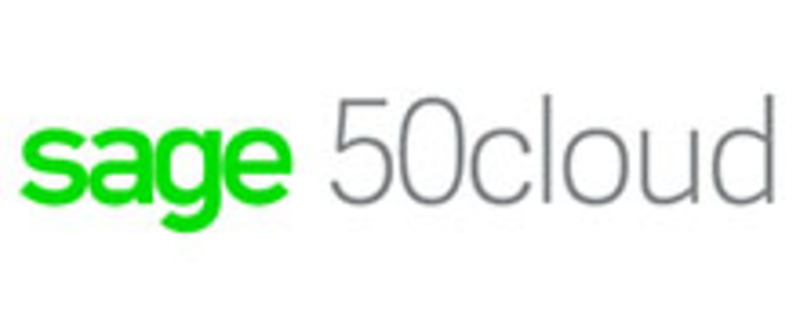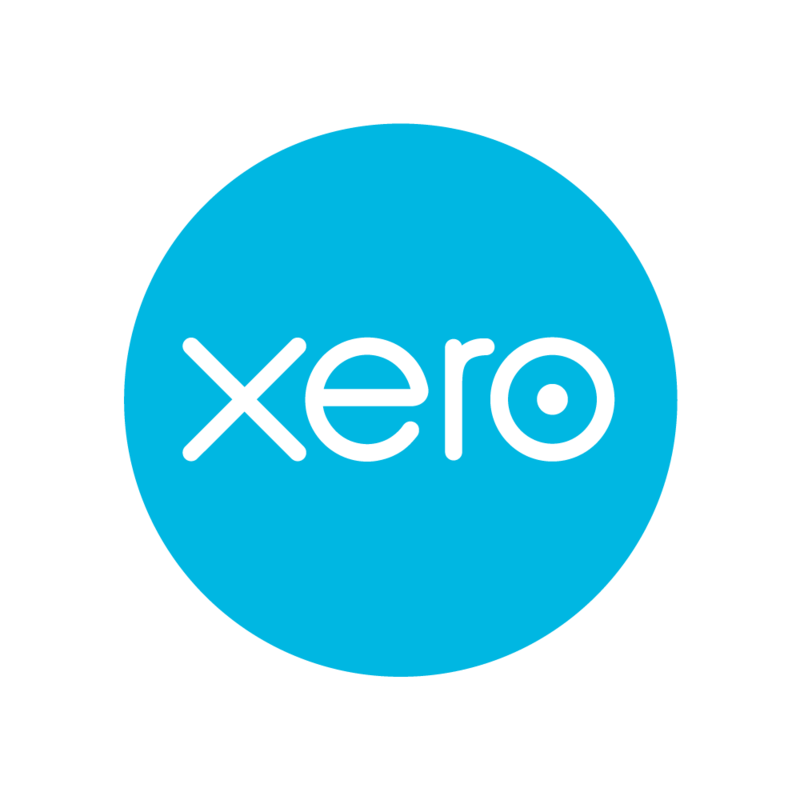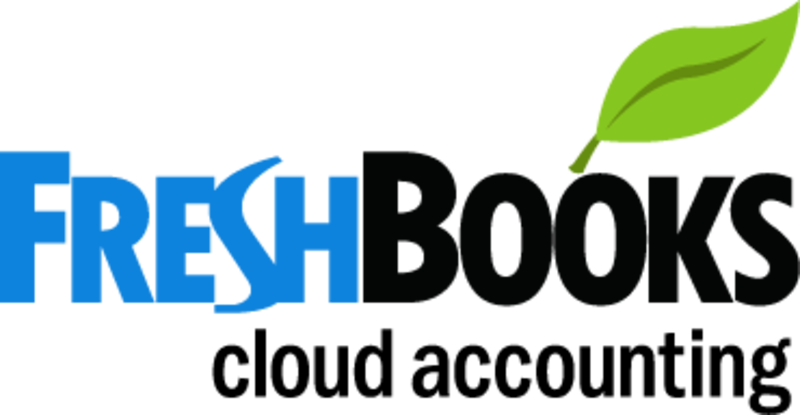Best Small Business Accounting Software
The right accounting software can make all the difference for your small business. Much like an online personal assistant, accounting software helps users with tedious manual processes — such as recording, reporting and analyzing transactions — which can eat up your time and keep you away from more pressing matters. This digital tool can help you stay on top of your finances, manage your accounts and get ready for the tax season.
To help you find the best software solution for your needs, we'll walk you through our reviews of the five best small business accounting software programs on the market. We'll go over their features, pricing and what each one is best for.
Our Top Picks For Best Small Business Accounting Software
- Wave - Best Free Accounting Software
- QuickBooks Self-Employed - Best For Part-Time Or Full-Time Freelancers
- Sage 50cloud Accounting - Best Desktop Accounting Software
- Xero - Best Software For Third-Party Integrations
- FreshBooks - Best Software For Unlimited Invoicing
Best Small Business Accounting Software Reviews
Why we chose it: Wave is an online accounting software program for service-based small businesses that offers a free plan with unlimited invoicing, receipt scanning, customizable templates and reporting.
Wave offers three free services: invoicing, accounting and banking.
The invoicing tool lets you create custom templates and send unlimited invoices with no fees. It can also send automated payment reminders (so you don't have to bug your clients) and offers multiple payment methods: Google Pay, Apple Pay, credit card payments and bank transfers.
Wave's banking software automatically logs and categorizes your debit card purchases. You can also use the mobile app to scan your receipts for cash payments.
Lastly, with Wave's accounting software, you can add unlimited collaborators and partners with varying permissions. For example, when you share your business profile with your accountant or tax preparer, they won't have access to your personal profile. The accounting tool also offers free reports, including a profit and losses report, to monitor your business's growth.
Wave offers more free features than many other accounting software programs, but every free plan has limitations. If you want payroll services, financial coaching or bookkeeping services, you'll have to pay an additional monthly fee: $40/per month for payroll and $149/per month for bookkeeping. Another downside is Wave's limited customer service, which only offers live chat and phone support on paid plans.
Why we chose it: Designed specifically for freelancers and independent contractors, QuickBooks Self-Employed comes with invoicing, mile tracking and other features to help you grow your freelance career.
Intuit Quickbooks is arguably the most popular name in the accounting software industry. It offers a wide range of accounting products for businesses of all sizes. QuickBooks Self-Employed is an accounting software for independent contractors and freelancers. Although there is no free version of the software, it's an affordable option for part-time or full-time freelancers.
With the basic Self-Employed plan, you'll get mileage tracking, separate software for your business and personal finances, quarterly estimated taxes and financial tracking. This plan costs $15/per month, but QuickBooks offers a 50 percent discount for your first three months. You can upgrade to the Tax Bundle for $25/ per month or the Live Tax Bundle, which gives access to a certified professional accountant (CPA), for $35/per month if you want more help filing your taxes.
QuickBooks Self-Employed has a simple cloud-based interface. The Self-Employed plan also comes with a mobile app to track your mileage and file photos of your receipts. You can mark each transaction you record in the app or web interface as "business" or "personal" — a helpful feature if you just started freelancing and don't have a separate business account.
All things considered, the software could be more scalable for a growing business. The plan upgrades only offer additional tax features, not more accounting features. You also can't add more users to your Self-Employed plan: if you hire another employee, you'll have to upgrade to another Intuit QuickBooks plan to give them access to the software.
Why we chose it: Unlike other desktop options, Sage 50cloud Accounting is highly customizable and integrates seamlessly with Microsoft 365.
Cloud-based accounting programs offer just enough features for a fledgling small business. But a growing business with more complex finances could be better off with desktop accounting software. Sage 50cloud Accounting is a good option for those who need extensive inventory management, reporting and integrated payroll without breaking the bank.
The company offers the following plans:
- Pro Accounting: $57.17/per month for one user
- Premium Accounting: $92/per user per month for up to five users
- Quantum Accounting: $152.42/per user per month for up to 40 users
The Pro Accounting plan ($34.30/per month with that discount) is ideal for a small business with a single-person accounting department. The software can be installed on any Windows desktop and comes with invoicing, bill tracking, inventory management, payroll tools and a dedicated customer success representative.
The Premium and Quantum plans come with advanced budgeting and industry-specific functions. They have more features than most small business owners need, but it's nice to have the option to upgrade as your business grows.
One of the best features of Sage 50cloud Accounting is its customizable dashboard. Other accounting software come with pre-made templates, but with this desktop software, you can adjust the interface to see the features that are most significant for your business.
Another factor that makes Sage stand out is its personalized customer service. The company offers 24/7 live chat and phone support, and you can contact your dedicated customer success representative from 9 AM to 8 PM ET on weekdays.
Why we chose it: Xero is a popular small business accounting program that connects with tons of e-commerce, payroll and inventory management apps to keep your business organized. It also comes with a surprising range of features for the cost.
Xero offers three paid plans and plenty of add-ons, making it a good fit for a small business or a growing chain.
- Its most affordable plan, The Early plan, costs $12 monthly and comes with basic financial tracking, reporting, a receipt capture tool and up to 20 quotes and invoices per month.
- The Growing plan, at $34 per month, offers most of the same features but with unlimited quotes and invoicing.
- The Established plan is Xero's highest price tier and has tools to claim expenses, accept payment in multiple currencies and see advanced analytics for $65 per month.
All these plans come with third-party app integrations. Square is one example: If you own a restaurant, you can connect Xero to your Square point of sale (POS) system to track and record payments. Xero can also integrate with Lightspeed, PayPal, Gusto, Capsule CRM and dozens of other apps. All those integrations make it easy to keep track of all your business's functions in one place.
According to customer reviews, Xero doesn't stand out for its user experience. The mobile app only gets 3.9 stars on Google Play — good, but not great — and the interface has a learning curve. Nonetheless, Xero offers online tutorials and resources to get to know the software, and has 24/7 live chat support if you run into any issues.
Why we chose it: FreshBooks is an easy-to-use accounting software with unlimited invoicing across all plans for those who have to juggle many invoices.
FreshBooks comes with expense tracking, reports, estimates and online payments features, and it offers an intuitive app for Android and iOS devices. The software's Lite plan starts at $17 per month, but FreshBooks offers 60% off for the first six months — a big plus for those just starting out. You can also choose from the Plus, Premium or Select plans for additional features like business health reports and accounts payable tracking.
The most exceptional feature of FreshBooks is unlimited invoicing. With the Lite plan, you can send unlimited invoices to up to five clients; the Plus plan comes with unlimited invoicing to up to 50 clients, and the Premium plan has no limit on clients. With the mobile app, you can send these invoices anywhere and anytime.
FreshBooks doesn't have a 24/7 customer support line, but you can contact customer service via email or phone between 8 AM - 8 PM ET on weekdays. Another drawback is that the Lite plan is pretty limited. It could work for a single-person business, but not for a growing business that needs advanced bookkeeping and other similar tools.
FreshBooks gets many positive customer reviews online, with many pointing to its simplicity and invoicing features. One thing to consider, however, is that the price of the higher-tier plans could become burdensome for smaller businesses.
Other Small Business Accounting Software We Considered
There are tons of accounting software programs out there, and while the options listed above stand out from the crowd, they might not be everyone's top choice. Here's a brief look at three other small business accounting software platforms we considered.
Zoho Books
If you use other Zoho apps to run your business, you might want to look into Zoho Books. This software has a wide range of features and a free plan tier. However, that free plan has limited invoicing, and the software limits your integrations if you aren't a Zoho user.
NetSuite
NetSuite is an accounting platform with a full range of finance tools, including automated features and compliance tools like generally accepted accounting principles (GAAP). It can be great for a business that requires financial compliance.
On the other hand, NetSuite has a steep learning curve and can be challenging to master for those who have never used accounting software. NetSuite also doesn't publicize its pricing — if you want to compare the prices, you'll have to contact the company to get a quote.
MarginEdge
If you own a restaurant, you might want to check out MarginEdge. This software is designed for small restaurants and seamlessly integrates with most POS systems. Its real-time margin tracking is a helpful tool for new restaurant owners, but this software didn't make it to the top of our list because it only targets the food service industry.
Small Business Accounting Software Guide
Before you opt for small business accounting software online, take some time to compare your options. Some platforms might have more features than your business needs, while others might be too limited. The best platform for your business comes down to your income, availability and financial needs.
This quick guide will cover a few ins and outs of small business accounting software to help you find the right program.
What Is Small Business Accounting Software?
Accounting software is a type of digital program that helps businesses manage their finances. Like personal finance software, which can build budgets and track your spending, accounting software gives you the tools to manage a business budget and grow your profit margins. You don't need to be a trained accountant to use these software programs since they are generally designed for ease of use.
Some programs are naturally more feature-rich than others, but they all offer basic accounting services, including:
- Invoicing: Create, send and track invoices to your clients.
- Reporting: See a detailed overview of your day-to-day finances and profit margins.
- Tax preparation: Store and organize your important tax documents to make filing easier.
How Does Small Business Accounting Software Work?
Small business accounting software uses automation and artificial intelligence (AI) to take over responsibilities that used to be handled by your human staff. Take expense tracking, for example. Instead of saving your receipts and tallying your monthly spending by hand, accounting software does it automatically and then uses your spending data to create detailed reports.
Integrations are an essential feature of any small business accounting software. Consider expense tracking again. If your accounting software can integrate with the app you use to order inventory, you don't need to input anything manually.
Take customer relationship management (CRM) as another example. If your software integrates with your CRM platform, it can access your clients' information to send payment reminders, monitor spending on rewards programs and more.
If you choose open-source accounting software with a source code that anyone can view and modify, you also get to customize the program's interface and features to better suit your business's needs. Free small business accounting software plans are often open-source but might require a steeper learning curve than non-open-source programs.
Key Features To Look For In Accounting Software
Most accounting software programs have different features and plans for businesses of various sizes. When shopping for a program specifically designed for small businesses, you'll want to avoid plans bloated with features you may not need.
Here are a few key features to look for.
Basic Accounting
Accounting tools should cover most (if not all) of the tasks handled by an accountant. That includes creating and sending invoices, tracking spending, recording payments, mapping profit margins and preparing reports.
If you manage a small or single-person business, accounting features might be all you need — especially if you're trying to stick to a budget. The good thing is that the best free software plans also come with extra perks to help with your day-to-day tasks.
Inventory Tracking
Inventory tracking tools may come in handy for any business that sells products. Some accounting software programs can track your inventory in real time and provide low-stock alerts. They can also estimate order costs and create new orders when your inventory runs low.
Billing
If you have a service-based business, your accounting software can enable online payments, send out bills and even send automated reminders. Billing tools will help you ensure you never forget to bill a client for your services.
Payroll
If your business has multiple employees, you may want to get accounting software that can handle your payroll. Some small business accounting programs come with payroll tools such as hour tracking, monthly payroll calculating and paycheck processing through direct deposit.
Financial Reporting
Financial reporting tools provide an overview of your business income, growth and profit margins. Some accounting software, like Intuit QuickBooks, includes industry-specific reporting tools for increased convenience.
Customer Relationship Management (CRM)
Some accounting software programs come with customer relationship management tools. CRM features keep track of your customers' contact information, send automated messages and record your customer interactions. This is an essential feature for a business with a growing customer base.
Project Management
Project management tools can help you categorize your daily tasks for enhanced productivity. Some accounting software lets you create and track budgets for specific projects. You might also have access to tools to monitor projects and assign tasks to team members.
Small Business Accounting Software FAQ
How We Chose The Best Small Business Accounting Software
We selected the top five small business accounting software programs based on the following criteria:
- Security: Your accounting software will have access to sensitive information like your banks and credit cards. Secure encryption is a critical feature.
- Multiple plan offerings: The best small business accounting software offers several plans for a growing business so you can upgrade the software as your business grows.
- Fair value for the features offered: The more expensive an accounting software is, the more features it should offer. We looked for accounting software programs that charge a fair price for the features they provide.
- Third-party ratings and reviews: We looked for small business accounting software with high ratings from unbiased third-party reviewers and a low number of customer complaints.
- Customer service: Responsive customer service is crucial if your accounting software isn't working. We chose providers with well-reviewed customer service — preferably a 24/7 phone line or live chat.
- Third-party app integrations: The best accounting software programs can integrate with the other apps you use to run your business, such as a POS system.
- Mobile app: A mobile app can make it easier to keep track of your finances wherever you go. We chose cloud-based accounting software programs that come with an intuitive mobile app.
- Free trial: A free trial can help you decide if the program is right for you before you buy. While not all programs on this list offer a 30-day free trial, some have discounts or demo options to test the program.




